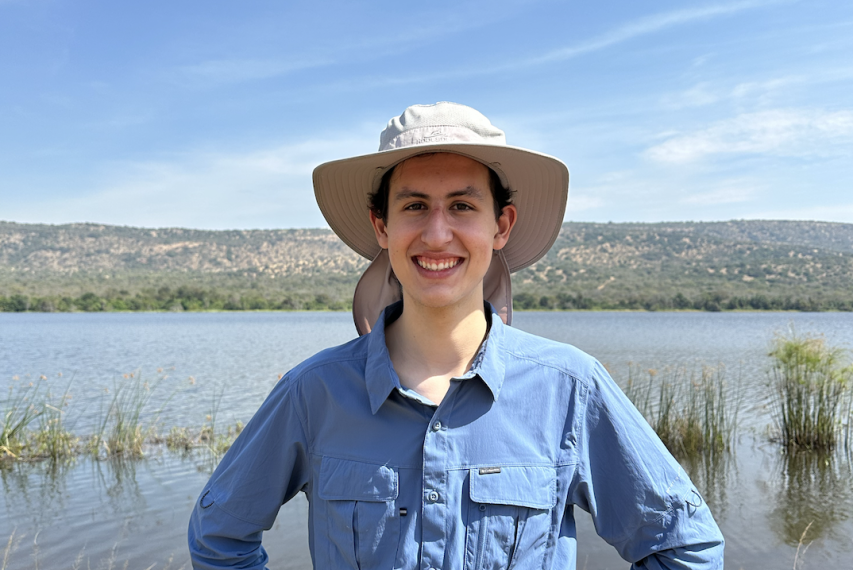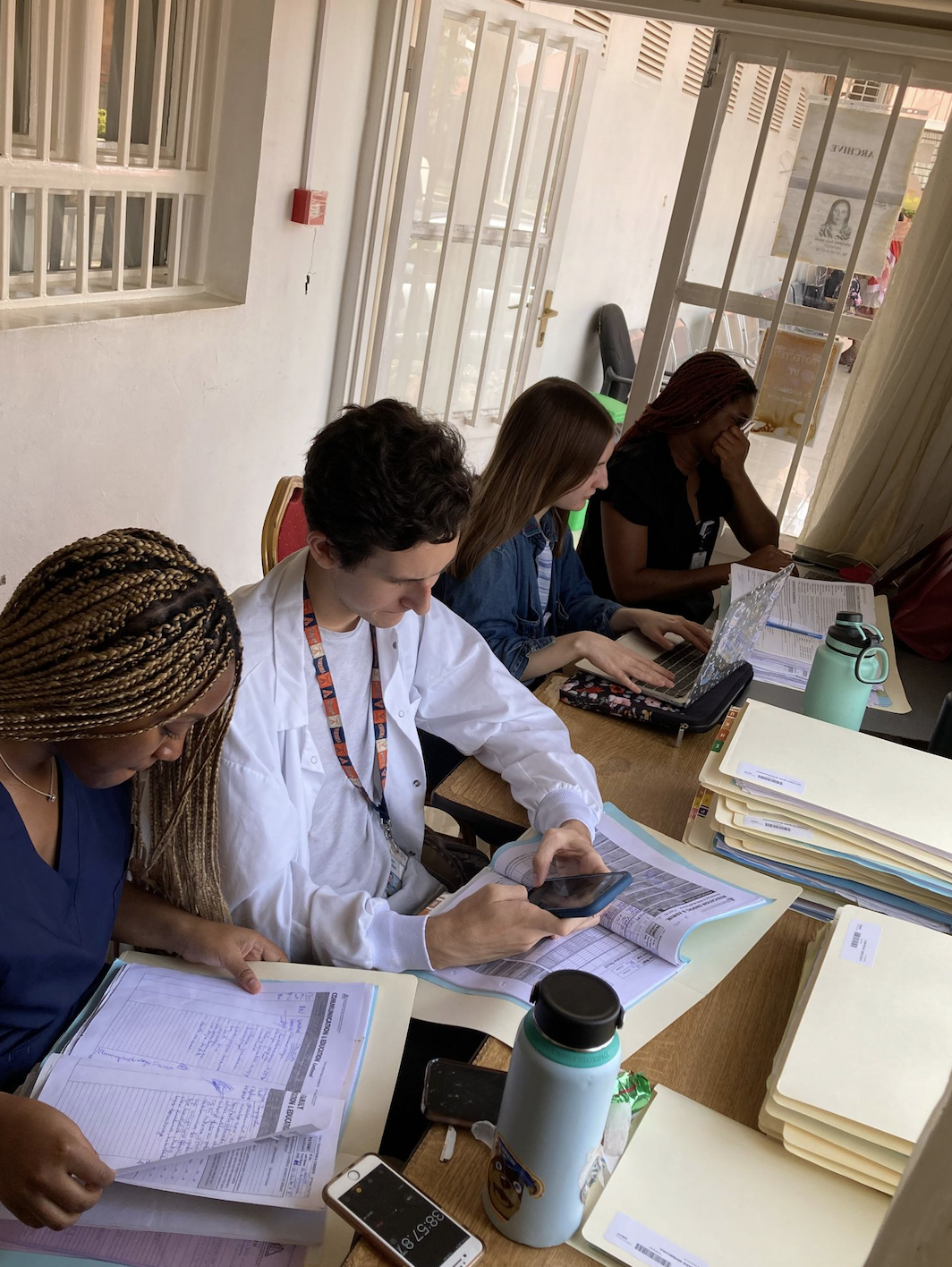
Owen Selden is a third-year student majoring in the Human Biology Distinguished Majors Program and a 2023 Center for Global Health Equity University Scholar. He talked about the global health experiences at UVA and in Rwanda that have inspired him to pursue a future in public health.
This past summer you traveled to Rwanda to perform research and immerse yourself in global health. Tell us about the project you worked on there.
Selden: I was in Kigali, Rwanda conducting research as a 2023 Center for Global Health Equity University Scholar on one of three Pediatric Intensive Care Units (PICU) at the University Teaching Hospital of Kigali (CHUK) in the country of Rwanda, which serves 5.4+ million children. The purpose of our descriptive study was to understand reasons for admission, common diseases, and factors related to resource utilization. We hoped to situate this understanding in the context of Rwanda's three-tiered healthcare system which would allow the study to inform the allocation of resources with the hope of decreasing mortality rates in the three-bed PICU at CHUK.
If you engage with an open mind, it will not only allow you to learn about another country and a way of life, but provide you an outlet to reflect on your values and learn more about who you are and who you want to be.
What sparked your interest in global health?
Selden: During my first year, I felt deeply uncertain about my future due to the limitless possibilities that the University of Virginia offered because I hadn’t found a path that engaged my interests in International Relations, Bioethics, Public Health, and Medicine.
It wasn’t until the Spring of 2022, when Dr. Julia Alejandra Morales Fontanilla lectured on Dr. Paul Farmer’s book, “On Suffering and Structural Violence” that my future in global health was realized. Dr. Farmer’s profound belief in the right to health through community-based healthcare was the moment where it “clicked” for me. This inspired me to reach out to the Center for Global Health Equity to discuss how to get involved in global health on Grounds. I began attending events at the Center, met Dr. Kelly and was awarded the Center for Global Health Equity University Scholar Award* the following Spring.
Dr. Kelly’s research that summer was in Rwanda and it was the right place for me. Furthermore, Rwanda is where Dr. Farmer founded the University of Global Health Equity, an international health science university, and thus was an ideal place for the founding and grounding of my future in public and global health. Listening to Professor Fontanilla’s passionate lecture and reading Dr. Farmer’s powerful words were foundational in leading me to pursue global engagement. That inspiration and my global experience confirmed for me that for the rest of my life, I want to use my intellectual passions to inform innovative models of health that affirm the right of everyone to access care.

From right to left, Dazhanae Houston, Owen Selden, Shaina Twardus, and Kimberely Duru are reading patient records and evaluating where information in their surveys are located in the files at the University Teaching Hospital of Kigali’s (CHUK) medical archive.
What was the best part of your time in Kigali? Was there anything that surprised you?
Selden: The best part of my time in Kigali was meeting the people of Rwanda and immersing myself in the country. Dr. Tracy Kelly (DNP), our faculty and research mentor, had lived in Rwanda teaching nursing during the Human Resources for Health Program and facilitated a true immersive experience, including bartering for food at Kimironko Market, playing tennis Cercle Sportif de Kigali, and appreciating Rwanda’s history and culture through many immersive trips, such as the one to the Genocide Memorial.
As undergraduates, Dazhanae Houston and I were the youngest travelers on the trip, so we bonded closely and supported each other as we held each other accountable to fulfill our intentions. Together, we experienced the unending kindness of the Rwandan people. We spoke with nurses in the PICU to the workers at the SIMBA Supermarket to the vendors at Kimironko Market. We got to see each other change and become more confident as time went along. It surprised me how much I learned just from observing, listening, and admiring Dazhanae, Dr. Kelly, Kimberely Duru, Shaina Twardus, the Clinical Nursing Leaders, our collaborators at CHUK, and the Rwandan people.
What are your plans for the future? Has this experience impacted your plans?
Selden: My plans are in a wonderful state of flux. I know that I am going to attend graduate and medical school with plans on pursuing a career as a Public Health Physician, but the path to get there feels excitingly non-linear. I am still deciding between Government Service and Academia. I am hoping to bridge career paths and find the outlet through which I can most fully realize the impact that I want to make on health and healthcare.
This experience solidified for me that I want to ask questions and find the answers to how we can use the vast array of talents and resources at our disposal to ensure that everyone receives the care that they deserve. Furthermore, I learned that research at its best is a form of advocacy through knowledge generation—one which works to improve outcomes, inform decisions, and includes all stakeholders in its development. I am taking the knowledge from my research in Rwanda to inform my current Population Health work with Dr. Rajesh Balkrishnan (PhD) and research on Sickle Cell Anemia in Dr. Chance John Luckey’s (MD, PhD) Immunology Lab.
What would you tell UVA students seeking global health experiences today?
Selden: I would tell them with a smile and a lot of enthusiasm, “go for it!” Global engagement profoundly changes your view of what it means to occupy a space and exposes you to the rich diversity of the human experience. I have taken Anthropology courses at the University of Virginia in an effort to gain this appreciation.
While it is helpful, it cannot replace the experience of engaging in-person. This engagement is exciting, sometimes uncomfortable, and deeply rewarding. Organizations on Grounds like the Center for Global Health Equity can introduce you to this type of engagement. Furthermore, I would want them to know that if you engage with an open mind it will not only allow you to learn about another country and a way of life, but provide you an outlet to reflect on your values and learn more about who you are and who you want to be. As a mentor and PhD Candidate that I met in country, Nanyombi Lumbimbi said, “you learn about how you want to show up in the world.”
*The 2024 Center for Global Health Equity University Scholar Award is open for all students enrolled at the University of Virginia. If you are interested in this please email cghe@virginia.edu for more information and advising regarding global engagement.
Emily Mellen/Featured in UVA Global News September 2023
September 7, 2023
